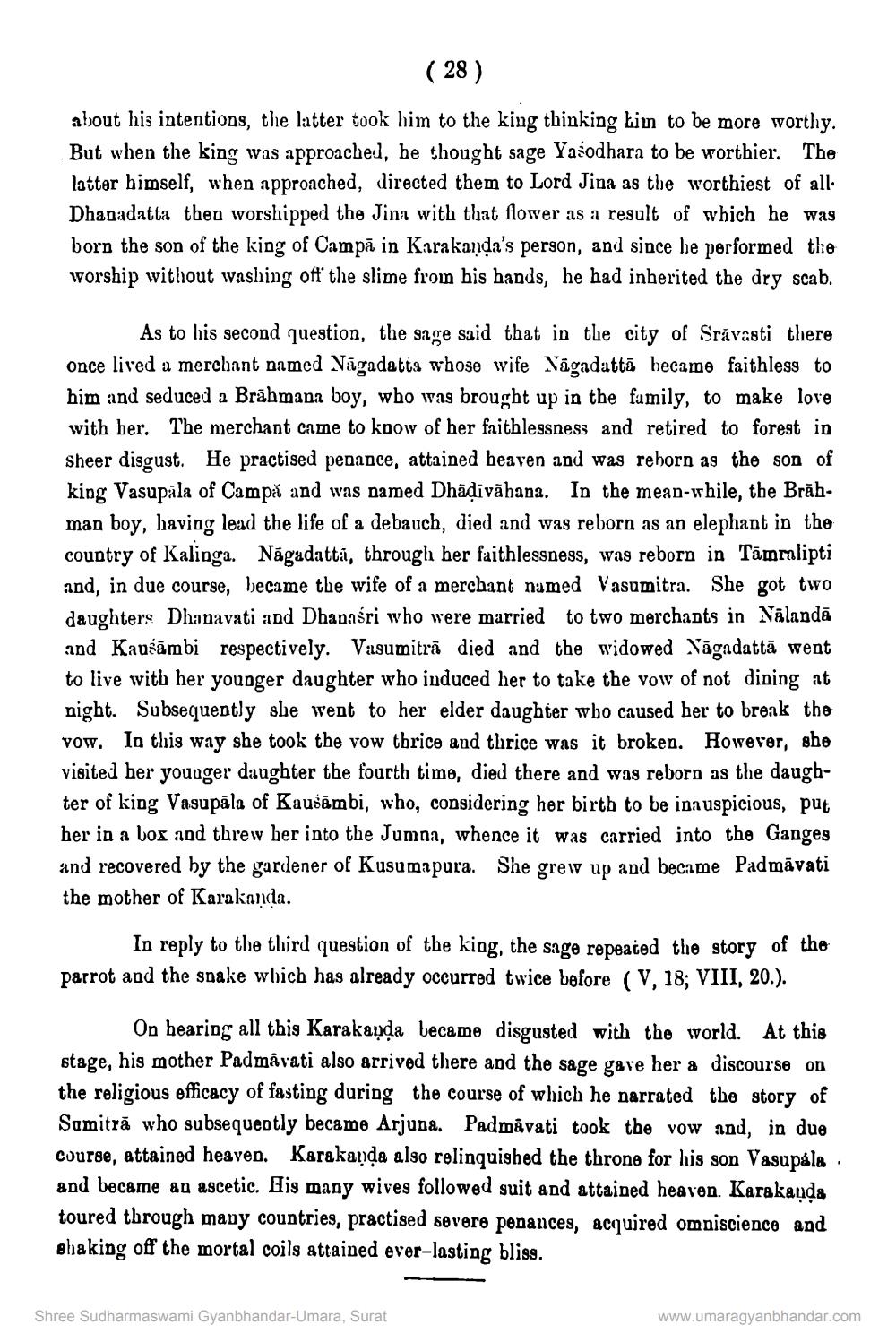________________
( 28 )
about his intentions, the latter took him to the king thinking him to be more worthy. But when the king was approached, he thought sage Yasodhara to be worthier. The latter himself, when approached, directed them to Lord Jina as the worthiest of all. Dhanadatta then worshipped the Jina with that flower as a result of which he was born the son of the king of Campā in Karakanda's person, and since he performed the worship without washing off the slime from his hands, he had inherited the dry scab.
As to his second question, the sage said that in the city of Srávasti there once lived a merchant named Nāgadatta whose wife Nāgadattā became faithless to him and seduced a Brāhmana boy, who was brought up in the family, to make love with her. The merchant came to know of her faithlessness and retired to forest in sheer disgust. He practised penance, attained heaven and was reborn as the son of king Vasupāla of Campă and was named Dhādīvāhana. In the mean-while, the Brāhman boy, having lead the life of a debauch, died and was reborn as an elephant in the country of Kalinga. Nāgadattā, through her faithlessness, was reborn in Tāmmlipti and, in due course, became the wife of a merchant named Vasumitra. She got two daughters Dhanavati and Dhanasri who were married to two merchants in Nālandā and Kaušāmbi respectively. Vasumitrā died and the widowed Vāgadattā went to live with her younger daughter who induced her to take the vow of not dining at night. Subsequently she went to her elder daughter wbo caused her to break the vow. In this way she took the vow thrice and thrice was it broken. However, she visited her younger daughter the fourth time, died there and was reborn as the daughter of king Vasupāla of Kaušāmbi, who, considering her birth to be ina uspicious, put her in a box and threw her into the Jumna, whence it was carried into the Ganges and recovered by the gardener of Kusumapura. She grew up and became Padmāvati the mother of Karakanda.
In reply to the third question of the king, the sage repeated the story of the parrot and the snake wbich has already occurred twice before (V, 18; VIII, 20.).
On hearing all this Karakaụda became disgusted with the world. At this stage, his mother Padmavati also arrived there and the sage gave her a discourse on the religious efficacy of fasting during the course of which he narrated the story of Sumitrā who subsequently became Arjuna. Padmavati took the vow and, in due course, attained heaven. Karakanda also relinquished the throne for his son Vasupála and became au ascetic. Elis many wives followed suit and attained heaven. Karakanda toured through many countries, practised severe penances, acquired omniscience and shaking off the mortal coils attained ever-lasting bliss.
Shree Sudharmaswami Gyanbhandar-Umara, Surat
www.umaragyanbhandar.com




